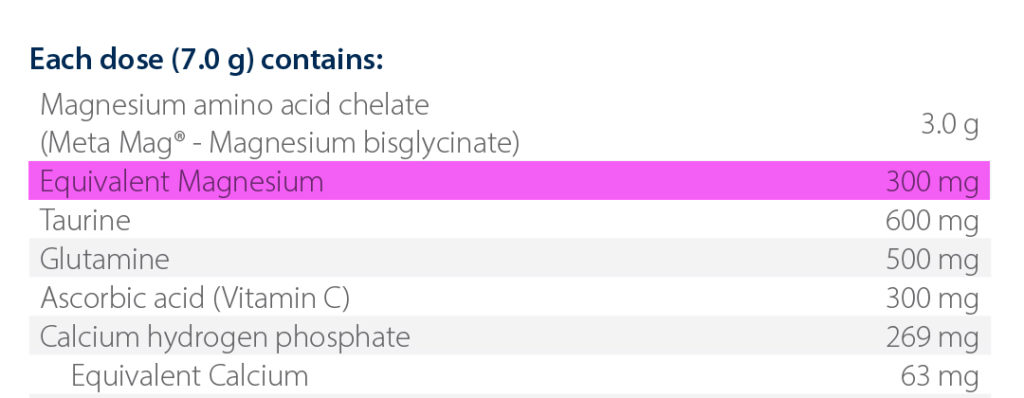 Did you know that magnesium is required by the trillions of cells in your body to carry out hundreds of different processes every day? Magnesium is involved with the metabolism of your foods, hormone production, stress modulation, muscle relaxation, bone health and sleep regulation. So you can see why magnesium is a vital nutrient! With this in mind, it is important you are getting enough to ensure your body can perform these functions. Here are my top 10 reasons you may need a little more of this miracle mineral.
Did you know that magnesium is required by the trillions of cells in your body to carry out hundreds of different processes every day? Magnesium is involved with the metabolism of your foods, hormone production, stress modulation, muscle relaxation, bone health and sleep regulation. So you can see why magnesium is a vital nutrient! With this in mind, it is important you are getting enough to ensure your body can perform these functions. Here are my top 10 reasons you may need a little more of this miracle mineral.You’re not getting enough
Reason 1: Do you belong to 33% of the Australian population not meeting their minimum daily magnesium requirement?
Recommended dietary intakes (RDIs) for magnesium range from 310 mg/day (females) to 420 mg/day (males), which can easily be obtained from consuming roughly one cup of cooked green vegetables, a handful of nuts, and a raw cacao smoothie. Sounds doable right? Unfortunately, that’s not what everyone is eating, with magnesium deficient refined and processed foods creeping onto people plates. These RDIs also do not take into consideration when your body has an increased demand or is actively deficient in magnesium, meaning you may need even more to meet your needs.
Do you belong to 33% of the Australian population not meeting their minimum daily magnesium requirement?

Reason 2: Even if you are eating a diet predominant in wholefoods, modern agricultural practices have unfortunately depleted the soil from many key minerals including magnesium, again making it harder to meet your RDI for magnesium.
You’re losing too much
Reasons 3, 4 & 5: Coffee and tea contain tannins that can decrease the intestinal absorption magnesium. Additionally, caffeine, as well as alcohol have a diuretic effect, increasing the loss of water and minerals, such as magnesium, via the urine.
Reason 6 & 7: Certain medications (such as antibiotics, diuretics and steroids) can cause moderate to severe depletion in magnesium, as can exercise through urinary excretion and sweat.

Reason 8: Did you know about magnesium’s special relationship with stress? Firstly, having a low level of magnesium is associated with the onset of stressful conditions. However, the activation of the stress response then actually increases the use and elimination of magnesium from the body.
This can result in a vicious cycle: low magnesium causes increased stress, which leads to an increase in the use and excretion of magnesium, leading to lower magnesium levels.
low magnesium causes increased stress, which leads to an increase in the use and excretion of magnesium, leading to lower magnesium levels.
On the bright side, this also means that you can use magnesium therapeutically as both a preventative and treatment of stress.

Reasons 9 & 10: Some of the most common presentations seen by healthcare Practitioners are those of poor sleep and fatigue, with low magnesium playing a causative role in both conditions. This is because magnesium is needed to synthesise the relaxing and sleep-promoting neurotransmitters GABA (gamma-aminobutyric acid) and melatonin, as well as being required to produce the energy your cells need to stay firing throughout the day.
Boost your magnesium levels
If you’re now thinking it’s time to increase your magnesium intake, a supplement can be a great way to top up your diet, support an increase in demand or address a deficiency. To make choosing a magnesium supplement available easier, focus on the two points below so you can make the right decision:
Dose:
When perusing supplement labels, look for how much elemental or equivalent magnesium it contains – 300 mg per dose is an ideal amount. Talk to your healthcare Practitioner when interpreting supplement labels for further explanation and clarification.

Form:
Not all forms of magnesium are the same, with different types leading to different levels of absorption and tolerability. For example, salt forms of magnesium such as magnesium oxide and magnesium citrate are suboptimal for replenishing magnesium levels, as they can draw water into the bowel and cause diarrhoea. Alternately, amino acid chelate forms, such as magnesium bisglycinate, provide optimal absorption and lower side effects when compared to other forms of magnesium available.
In the instance of magnesium bisglycinate, these superior outcomes are due to magnesium’s chemical bond to the amino acid glycine. Glycine:
- allows the magnesium to be absorbed via efficient protein channels in the intestine (instead of competitive mineral channels),
- protects magnesium from binding to things like tannins (ensuring absorption again), and
- stops drawing water into the bowel (preventing diarrhoea).
Magnesium, the Miracle Mineral
There may be many reasons why you may not be getting enough or may be in need of more magnesium. To learn more about magnesium, speak to your local healthcare Practitioner to find the right magnesium for you.

Leave a Reply